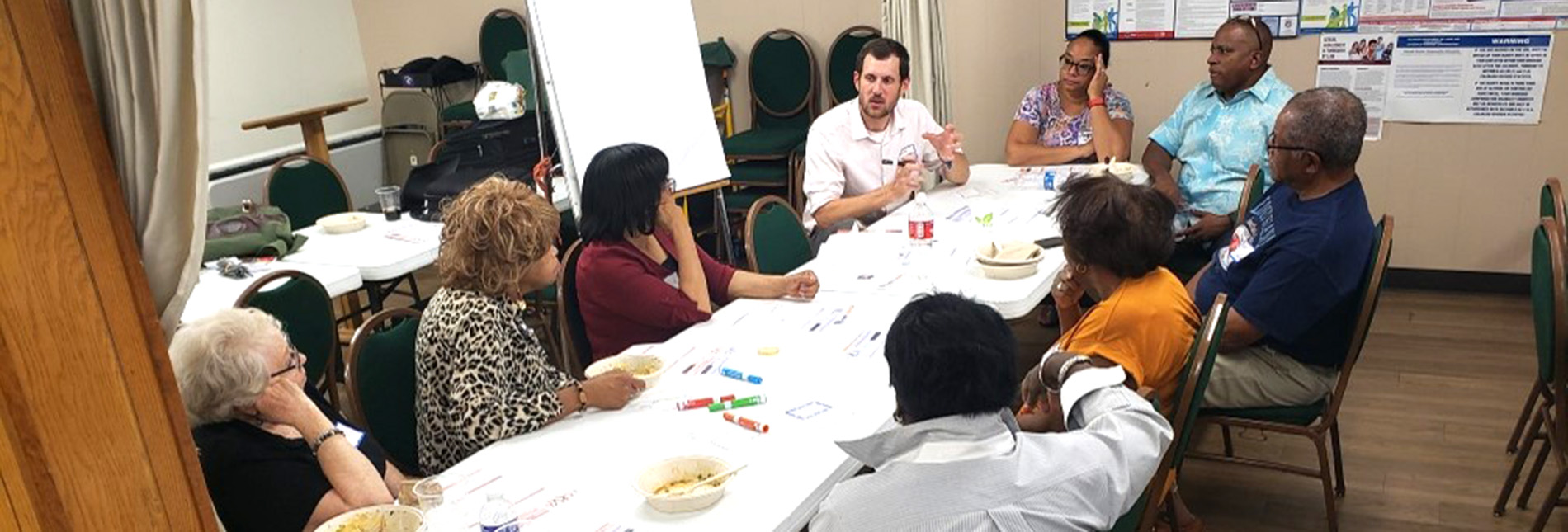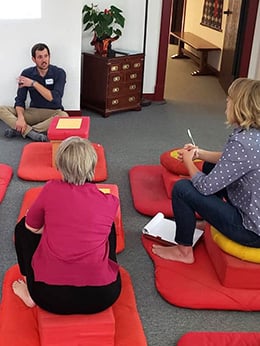Vaccine hesitancy is something we hear a lot about these days related to a potential coronavirus vaccine. Yet vaccine hesitancy has been a public health issue in the U.S. for many years. In 2019, a measles outbreak associated with vaccine refusal in religious communities infected 1,282 Americans—the most cases since 1992. And from 2006-2011, the rate of kindergarteners opting out of school-required vaccinations tripled.
“As a pediatrician and a researcher, I wanted to know why,” says Joshua Williams, MD, assistant professor of pediatrics in the University of Colorado School of Medicine and pediatrician at Denver Health Medical Center.
So Williams launched a collaboration with Adrian Miller, executive director of the Colorado Council of Churches, to ask key questions and try to find some answers. Together, they formed the CURIOUS Partnership – Coloradans Understanding Religion and Immunization thrOUgh Sustained Partnership – as a community-academic venture.
The Colorado Council of Churches is a Christian organization with 800 member churches and interfaith contacts that engages members to accomplish social justice work. It advocates for preventive care services and the concept of shared social responsibility to prevent diseases.
Listening sessions
“My passion is to get churches out there in the world in a way people may not expect,” Miller says. “I had been reading about the outbreak of diseases we thought had disappeared—and appearing in religious communities. So when we had the chance to do study, I was intrigued.”
Joshua Williams holds a listening session
at the Denver Shambhala Center. At the
top of page, a listening session takes
place at the United Church of Montbello.
Editor's note: All photos were taken
before the COVID-19 pandemic.
Williams and Miller sought to determine what questions about vaccines are important to religious Coloradans. They received a Community Engagement pilot grant from the Colorado Clinical and Translational Sciences Institute and set about conducting listening sessions in five Colorado communities nine months before the pandemic shut everything down. The listening sessions included churches but also Jewish and Buddhist faith communities. They documented the questions that were posed and formed a community advisory board to determine priorities for future interventions.
A total of 137 questions were asked—102 which were unique. Both men say they were surprised to see all ages were interested in vaccines—not just young parents. Most surprising of all was that the overwhelming majority of questions were secular in nature, not religious.
Three priorities
They organized the questions into themes and formed a community advisory board (CAB) from multiple churches that participated. With the CAB’s help, they developed three priorities: vaccine schedule, vaccine safety and influenza.
“I was taken aback by the gratitude,” Williams says. “Those in the listening circles appreciated the opportunity to voice their concerns without fear of being judged or being labeled.”
They had questions, and Williams tried to normalize that. He says, “It was a breath of fresh air for a lot of people to be able to ask questions and have a safe space to do that.”
Williams and Miller have published the results of their study in the journal Vaccine. They also presented their findings at the 2020 Public Health in the Rockies Annual Meeting.
Going forward, they plan to apply for another CCTSI Community Engagement Pilot Grant and build on what they found by creating trusted, safe spaces in future listening circles—whether the topic is flu vaccine or the coronavirus.
“This presents a tremendous opportunity to educate people. That what is so exciting about working with Josh…we have an opportunity to demystify a lot. There is so much disinformation out there,” Miller says.
When asked how the study will change the way he practices medicine, Williams talks about the limitations of what can be accomplished in a 15-minute well child visit with siblings in the room and lots of topics to address. He says he’d like to see additional messaging about vaccines in the community.
“The unique atmosphere of trust is really special in these faith-placed listening sessions. My goal is to get them to trust me as a pediatrician and believe I have their child’s best interest at heart,” Williams says. “These events build into trust that is already there between community leaders, congregants and physicians. I see it as complementary to work I do every day in the office.”
Editor’s note: All photos were taken before the COVID-19 pandemic. Wendy Meyer is the director of communications and marketing for the Colorado Clinical & Translational Sciences Institute.


.png)
.jpg)
